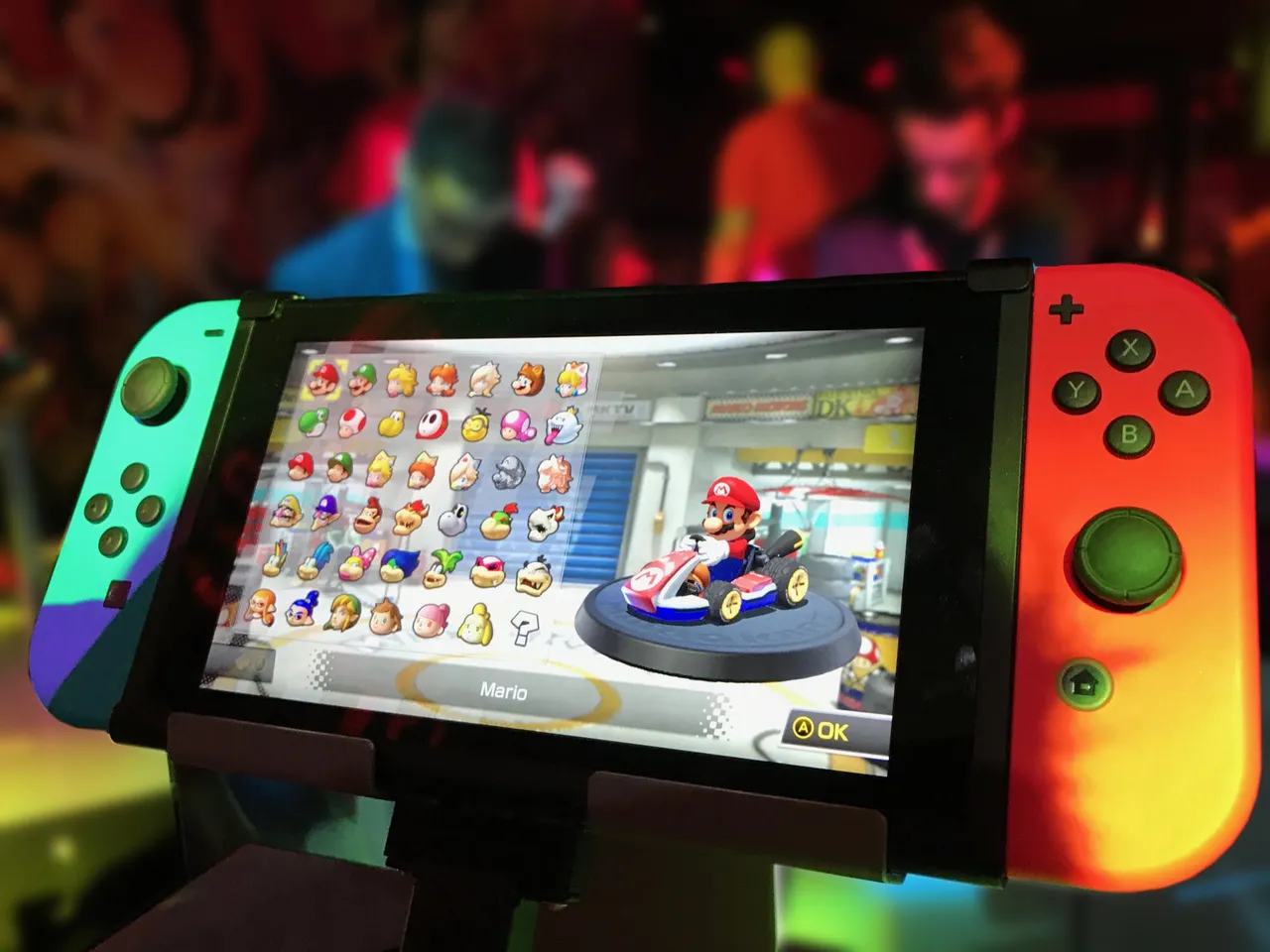Many see in the world of game development their absolute dream job. But is it really that gorgeous? Let's take a look at the facts.

Who Am I And What Do I Even Know?
First a few words about me and why I think I can tell you something.
I have worked as a consultant in the software industry for several years and have now been an application manager in the software industry for more than 5 years.
I also got involved in various game projects. Some more successful than others. My role in these projects was different. From programmer to game designer to project manager, everything was there.
I also have several friends and contacts who work full-time in the games industry and have been able to give me very good insight into other (large) companies.
So my experience is not only based on my own work in the indie scene, but also on those of employees from AAA studios such as Ubisoft and CDPR.
In fact, a game project is not that different from a traditional software project. From a project perspective, of course, not in terms of content.
The Dream And The Reality
Many who have chosen "game developer" as their dream job - often at a young age will quickly notice that there is no such thing as a "game developer" position.
Apart from the indie scene, where several positions are filled by a single person, the task of game development is divided into many areas:
- Programming (frontend, backend, web, mobile ...)
- Audio effects / music
- Graphics (2D, 3D, concept art ...)
- Testing
- Marketing
- Story
And that's far from all. A look at the job advertisements of well-known studios often reveal more variation than one would like to assume.

Okay, but at least you can then design the levels for the next Call Of Duty, or create the soundtrack for Assassin's Creed, right? No!
There are unfortunately far more skilled programmers and artists of all kind out there than jobs at AAA studios.
It is much more realistic to work on the next super exciting (attention, sarcasm) Clash of Clans clone. Or some Barbie's magical world of horses.
If one day you are one of the lucky few who are allowed to work on a Diablo, then congratulations!

Most of you have probably heard of the so-called Crunch Time.
For those who don't know, this time basically describes the last few weeks before release. Here, massive overtime is usually required of the employees (80h + / week) to bring the game to market.
At this point, at the latest, the fun of the actual work stops for many.
It is not uncommon for employees to sleep in the office and spend the weekend there. There is a reason why the offices of such companies are often extravagant and inviting.
This is extremely unusual in the "normal" software industry.
In addition, there is the financial and media pressure on the result.
If you have an ordinary software project going on and you don't achieve your goals (software is rarely delivered "in time" AND "in budget"), then yes, ok, shit happens.
If you screw up the game that thousands of gamers are waiting for, then you will be torn in midair. We all know the shit storms that developers often face.
In the B2B (Business to Business) area, probably nobody will start a boycott on Twitter if something goes wrong.
In addition, there is unfortunately a massive hire & fire policy in the games industry. Often positions are only advertised for individual projects and are also immediately cut back after the release. If the game does not run as successfully as hoped, it will even be more cut.

Nothing Positive At All?
Is everything really so bad? No!
From my point of view, game development is the premier league of the entertainment industry.
Graphics, music, story, handling ... all of this has to harmonize in order to create a really good game.
In no other profession do so many creative minds come together as here. And in hardly any other profession there is so much passion and love in the product (except in the construction of italian sports cars 😉 )
Even as a small solo developer you can realize your dreams if you don't set your goals too high. Minecraft put that on display in a spectacular way.
However, all of this has its price. Those who are aware of this may find their dream job in this area after all.
I wish you all the success needed!
Viele sehen in der Welt der Spieleentwicklung den absoluten Traumberuf. Aber, ist er denn wirklich so traumhaft? Lasst uns einen Blick auf die Fakten werfen.

Wer Bin Ich Und Was Weiß Ich Eigentlich?
Zuerst einmal ein paar Worte zu mir und warum ich glaube euch etwas erzählen zu können.
Ich habe mehrere Jahre als Consultant in der Softwarebranche gearbeitet und bin seit nun mehr als 5 Jahren Application Manager im Software Umfeld.
Nebenbei habe ich mich an Spieleprojekten beteiligt. Manche erfolgreicher als andere. Meine Rolle in diesen Projekten war unterschiedlich. Vom Programmierer über Gamedesigner bis hin zum Projektmanager war alles dabei.
Ich habe auch mehrere Freunde und Bekannte die Vollzeit in der Spielebranche arbeiten und mir sehr guten Einblick in andere (große) Unternehmen geben können.
Meine Erfahrung beruht also nicht nur auf eigenen Erfahrungen in der Indie-Szene, sondern auch auf denen von Mitarbeitern aus AAA-Studios wie zB. Ubisoft und CDPR.
Tatsächlich unterscheidet sich ein Spieleprojekt nicht sonderlich von einem herkömmlichen Softwareprojekt. Aus Projektsicht natürlich, nicht inhaltlich.
Der Traum Und Die Realität
Viele die sich als Traumberuf "Spieleentwickler" ausgesucht haben - oft in jungen Jahren werden schnell merken, dass es die Stelle "Spieleentwickler" gar nicht gibt.
Abgesehen von der Indieszene wo mehrere Positionen von einer einzelnen Person besetzt werden, untereilt sich die Aufgabe des Spieleentwickelns in viele Sparten:
- Programmierung (Frontend, Backend, Web, Mobile...)
- Audioeffekte / Musik
- Grafik (2D, 3D, Conceptart...)
- Testing
- Marketing
- Story
Und das ist bei weitem nicht alles. Ein Blick auf die Stellenausschreibungen bekannter Studios offenbart oft mehr Variation als man annehmen möchte.

Nun gut, aber immerhin kannst du dann die Level für das nächste Call Of Duty modellieren, oder den Soundtrack für Assassins Creed erschaffen, richtig? Falsch!
Es gibt leider sehr viel mehr fähige Programmierer und Künstler aller Art auf dem Markt als Stellenangebote bei AAA-Studios.
Viel realistischer ist es, an dem nächsten super spannenden (Achtung, Sarkasmus) Clash of Clans Clon zu arbeiten. Oder an Barbies zauberhafter Pferdewelt.
Solltest du eines Tages zu den wenigen glücklichen zählen die an einem Diablo arbeiten dürfen, dann Gratulation!

Die meisten von euch haben vermutlich von der sogenannten Crunch Time gehört.
Für die die es nicht kennen, diese Zeit beschreibt quasi die letzten Wochen vor dem Release. Hier werden meist massive Überstunden von den MitarbeiterInnen gefordert (80h+ / Woche) um das Spiel zur Marktreife zu bringen.
Spätestens hier hört bei vielen der Spaß an der eigentlichen Arbeit auf. Dass MitarbeiterInnen dann auch im Büro übernachten und das Wochenende dort verbringen ist keine Seltenheit. Es hat schon seinen Grund warum die Büros solcher Firmen oft extravagant und einladend eingerichtet sind.
In der "normalen" Softwarebranche ist so etwas äußerst unüblich.
Dazu kommt der finanzielle und mediale Druck auf das Ergebnis.
Hast du ein gewöhnliches Softwareprojekt am laufen und erreichst nicht deine Ziele (Software wird eigentlich selten "in time" UND "in budget" geiefert), dann ja, ok, shit happens.
Verbockst du das Spiel auf das tausende Gamer warten, dann wirst du in der Luft zerrissen. Wir alle kennen die shit storms mit denen Entwickler oft konfrontiert werden.
Im B2B (Business to Business) Bereich wird vermutlich niemand auf Twitter einen Boykott starten, wenn etwas nicht passt.
Darüber hinaus herrscht leider in der Spielebranche eine massive hire&fire Politik. Oft sind Stellen nur für einzelne Projekte ausgeschrieben und werden nach dem Release auch direkt wieder abgebaut. Läuft das Spiel nicht so erfolgreich wie erhofft, dann wird erst recht abgebaut.

Gar Nichts Positives?
Ist nun wirklich alles so mies? Nein!
Aus meiner Sicht stellt die Spieleentwicklung die Königsklasse der Unterhaltungsbranche dar.
Grafik, Musik, Geschichte, Handhabung... all das muss harmonieren um ein wirklich gutes Spiel zu erschaffen.
In keinem anderen Beruf kommen so viele kreative Köpfe zusammen wie hier. Und in kaum einem anderen Beruf steckt so viel Leidenschaft und Liebe in dem Produkt (der Bau von italienischen Sportwagen ausgenommen 😉 )
Selbst als kleiner Solo-Entwickler kann man sich verwirklich wenn man seine Ziele nicht zu hoch steckt. Minecraft hat das spektakulär zur Schau gestellt.
Das alles hat allerdings seinen Preis. Wer sich dessen bewusst ist, findet vielleicht doch seinen Traumjob in dem Bereich.
Viel Erfolg!
Images from Pexels.com
